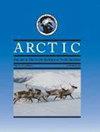基于能量和蛋白质替代的努勒维特地区乡村食品价值评估
IF 0.8
4区 地球科学
Q4 ENVIRONMENTAL SCIENCES
引用次数: 1
摘要
要在多种多样的土著人民粮食系统中传播价值,就需要关注经济与环境、粮食与野生动物,以及人民和土地的健康。对不同实体进行估值总是很困难,但往往对描述集体财富和福祉、量化权衡以及考虑为另一个实体做出牺牲时的补偿至关重要。在这里,我们通过将收获的乡村食品的数量和营养成分信息与商店购买的食品的营养成分和当地价格相结合,来估计努纳武特乡村食品的替代价值。将报告的收成中可获得的五年平均能量和蛋白质与建议的膳食津贴进行比较表明,21个努纳武特社区中有17个社区收获的乡村粮食足以满足所有社区成员的蛋白质需求。努纳武特的乡村粮食系统每年从全国各地收获500万公斤富含蛋白质的食物,购买这些富含蛋白质的食物需要花费1.98亿美元,每公斤的替代价值在13.19美元到39.67美元之间,具体取决于能量与蛋白质替代以及包括或不包括商店购买的食物补贴。这些估值高于以往对当地食品价值的大多数估计,因为它们更能反映出乡村食品的能量和营养丰富程度,以及北部社区商店购买食品的高价格。乡村粮食系统在许多深刻的方面都是无价的;提高对其能源和蛋白质替代成本的认识,以及其广泛的营养和文化价值,可能有助于确保在北部粮食安全和经济发展倡议中优先考虑当地粮食系统。本文章由计算机程序翻译,如有差异,请以英文原文为准。
Valuation of Country Food in Nunavut Based on Energy and Protein Replacement
Communicating value across the pluralities of Indigenous Peoples’ food systems requires attention to economy and environment, food and wildlife, and the health of the people and that of the land. Valuation of distinct entities is always difficult but often essential to describe collective wealth and well-being, to quantify trade-offs, and to consider compensation when one is compromised for another. Here we estimate the replacement value of Nunavut country food by combining information on the amount and nutritional composition of harvested country food with the nutritional content and local price of store-bought food. Comparing the five-year average of energy and protein available in reported harvest to recommended dietary allowances indicates that 17 of 21 Nunavut communities harvest enough country food to satisfy the protein requirements of all community members. Nunavut’s country food system annually harvests five million kg of protein-rich food from across the territory, which would cost $198 million to purchase as store-bought protein, with a replacement value between $13.19 and $39.67 per kg depending on energy versus protein replacement and the inclusion versus exclusion of store-bought food subsidies. These valuations are higher than most previous estimates of local food value because they are more reflective of the energy and nutrient richness of country food and the high price of store-bought food in northern communities. The country food system is priceless in many, profound ways; better awareness of its energy and protein cost of replacement, together with the breadth of its nutritional and cultural value, may help to ensure local food systems are prioritized in northern food security and economic development initiatives.
求助全文
通过发布文献求助,成功后即可免费获取论文全文。
去求助
来源期刊

Arctic
地学-环境科学
CiteScore
2.30
自引率
0.00%
发文量
51
审稿时长
6-12 weeks
期刊介绍:
Arctic is a peer-reviewed, primary research journal that publishes the results of scientific research
from all areas of Arctic scholarship. Original scholarly papers in the physical, social, and biological
sciences, humanities, engineering, and technology are included, as are book reviews,
commentaries, letters to the editor, and profiles of significant people, places, or events of northern
interest
 求助内容:
求助内容: 应助结果提醒方式:
应助结果提醒方式:


